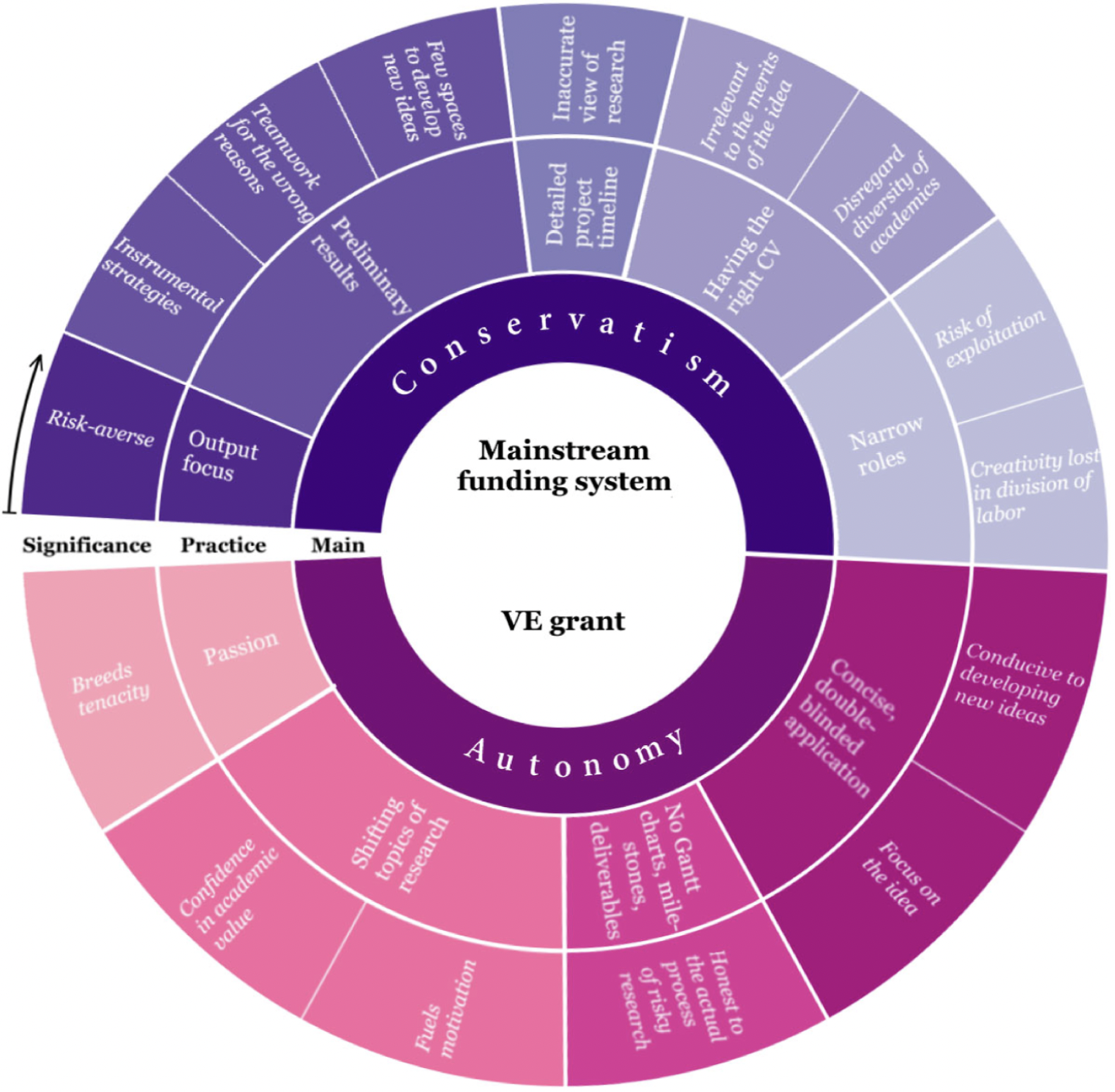Experiential affordances of research grant conditions
How conditions of research funding afford scientists certain opportunities and limitations – a study of grant recipients from the Villum Experiment Programme

Empirical evaluations indicate that competitive funding with conditions such as detailed project timelines, unanimous peer review, established track records in the field, and a network of partners increases the scale, pace, and impact of research—at least in the short term. However, growing evidence suggests that competitive funding schemes can also have counterproductive effects on some scientists’ creativity and thus hamper the potential for scientific breakthroughs in the long run by constraining scientists from pursuing risky, novel research.
To explore how scientists experience different conditions of research funding, the article “Fun and less fun funding: the experiential affordances of research grant conditions” examines how a new type of double-blinded research grant is experienced phenomenologically by recipients and whether it affords what it intends: risk-taking, novel research. Twenty-four recipients of the Villum Experiment Programme (VE), supported by the Villum Foundation, were interviewed.
VE promotes blue-skies research that would likely be deemed too risky by mainstream funding schemes within the natural and technical sciences. A key distinguishing feature is that the VE grants are awarded through a double-blinded review process; that is, no curriculum vitae (CVs) or names are disclosed to reviewers of the applications.
The article is a part of a wider study by The Danish Centre for Studies in Research and Research Policy (CFA) on the VE grant. The study by CFA is financed by a grant from the Villum Foundation and focuses on what types of research the applicants applied for, who received the grants, how the research was carried out and the results of the research.
The article shows that the interviewees experienced mainstream funding to be characterized by conservatism, control, and path dependency, whereas VE grants were seen to facilitate creativity, flexibility, and scientific joy. While interviewees agreed that VE or double-blinded review is not suitable for all research projects, the analysis shows that VE generally achieves its objective of promoting risky, novel research.
You can find the article here.
See also the recent article in Science Report here.